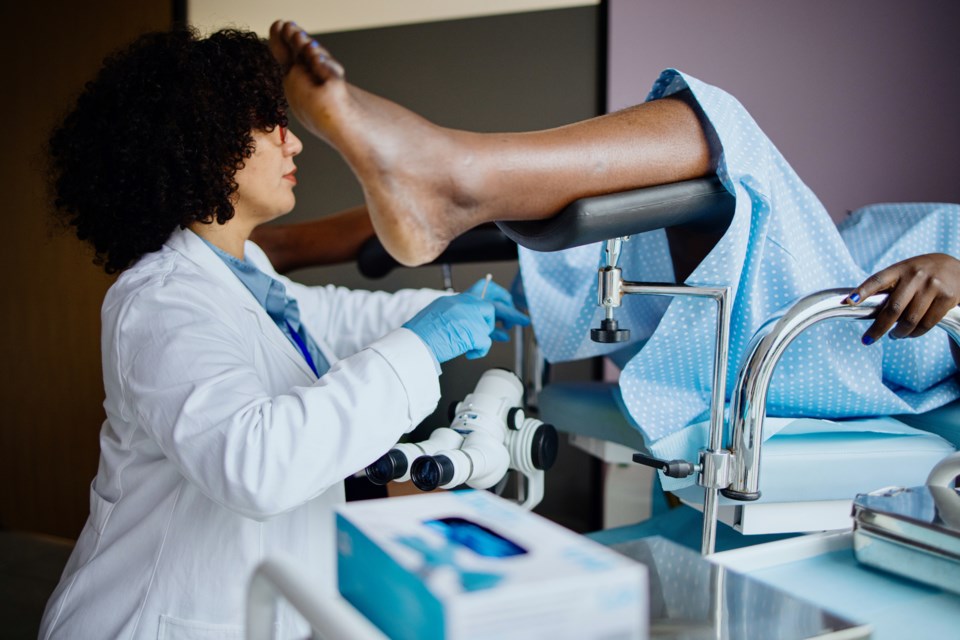I haven't been the most diligent cervix owner in the world.
Generally, when it’s dawned on me that I haven’t hopped up in the doctor’s stirrups for some time, I think to check: when is the last time I had a pap test done?
Part of the problem is, if you’re between 25 and 69, and you have had normal tests in the past, you only need to check that very unfun task off your to-do list every three years.
But in August, on the cusp of losing my family doctor, I decided it might be a good time to get the ol’ once-over and make sure I was still in working order.
I donned the flattering paper gown, laid awkwardly on the exam table, and, a short time later, was proudly on my way, secure in the knowledge that I was taking control of one aspect of my health. (Hot tip: pap test screening can reduce your risk of cervical cancer by 70 per cent.)
Only—wait!—I was told as of October I would no longer have a family doctor. Would the results be back before then?
Not a chance, the doctor said. The labs were so backed up, I was told to check back with reception at the doctor’s office in four months to see how a doctor-less patient gets ahold of test results.
A full five months later, and my results are still pending.
For people like me, who haven’t been militant about getting tests every three years like clockwork, this may not spell the end of the world. But once you actually get a test done, the question can linger in the back of your mind: am I OK?
The greater concern about this massive backlog—reportedly caused by an influx of tests after COVID, and, like everything else, a worker shortage—is for people with abnormal tests.
I can think of at least three women off the top of my head that I know in B.C. alone (this is reportedly a problem across the country) who have had abnormal pap tests that resulted in further treatment.
The problem is for many with abnormal cells, the first step can be to get tested again six months later. I’m not very good at math, but if people are routinely waiting at least half a year to get results, booking a follow-up to get screened again at six months isn’t going to work out.
To drive home this point, I asked one of those three British Columbians I know for their pap timeline.
In July 2021, a few weeks after the test, they were told abnormal cells were found. Two months later, they received their first biopsy, followed by a laser procedure the following month. Then, seven months later, in May 2022, there was a second biopsy, with the third two months later.
They now receive annual paps—rather than the standard three-year cycle.
Imagine that timeline if they had been unfortunate enough to have that abnormal test later in 2022. Perhaps those abnormal cells would’ve had time to grow and cause more problems than minor inconveniences and recovery.
It’s actually horrifying to think about.
The good news, however, is twofold. First, for some reason there’s been an influx of media coverage recently—despite it being a problem for some time—on this issue from major outlets. While that doesn’t always make a difference, making noise about an issue often can create change.
Second, according to an article from Global News, since October 2022, the Cervical Cancer Screening Laboratory has started using “an additional alternative cervical cancer collection method” that aims to return test results to the pre-COVID standard of 20 days.
All this isn’t to encourage you to postpone your pap until the situation is sorted. In fact, the opposite is true. Go check when you had your last test, get yourself to a doctor, and start your (possibly very long) wait now. It just might save your life.




